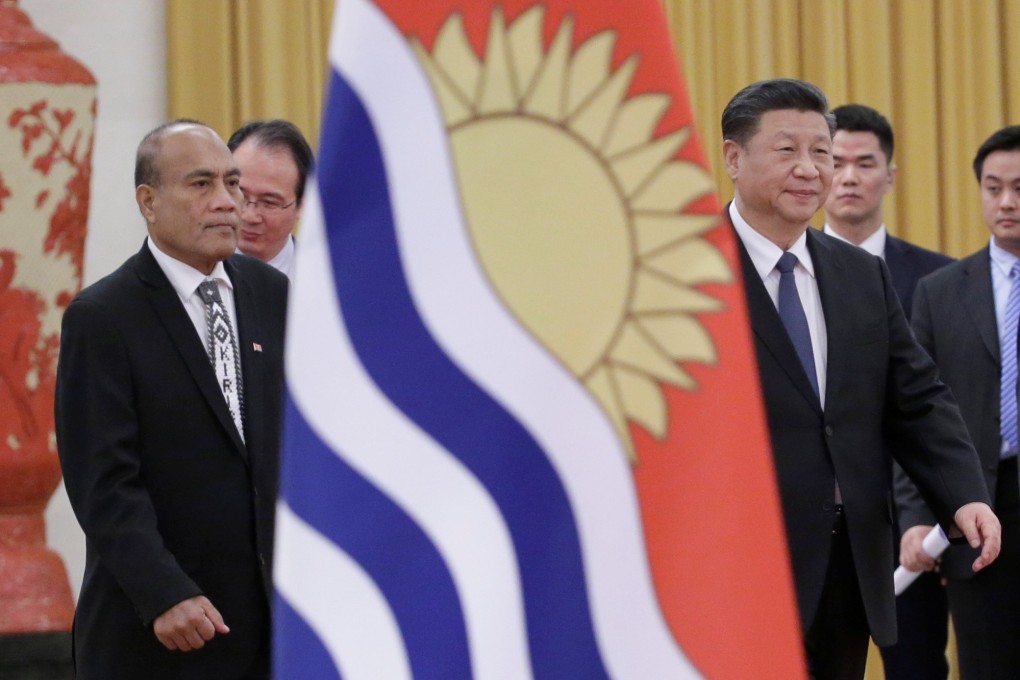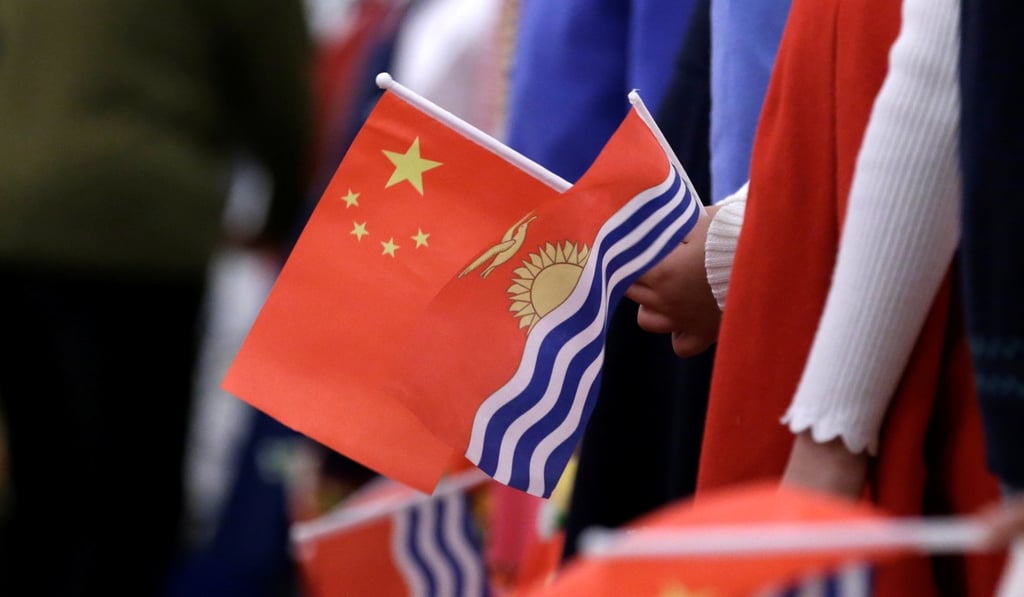Advertisement
Beijing seeks closer ties with Kiribati, site of Chinese space tracking station
- In a meeting in Beijing, Xi Jinping praised Kiribati for switching ties from Taipei, while Taneti Maamau reaffirmed his commitment to the ‘One China’ principle
- A Chinese diplomat said the sides were pursuing joint ventures, but he did not specify if Beijing would reopen a space tracking station in the Pacific island
Reading Time:3 minutes
Why you can trust SCMP

China said on Monday that it hoped to expand newly restored ties with the Pacific state of Kiribati, site of a strategic but mothballed Chinese space tracking station, in comments that may further stoke the United States’ anxiety about Beijing’s growing influence.
A senior Chinese diplomat said Beijing was “open” to all sorts of projects in Kiribati, an ex-British colony made up mainly of atolls in the central Pacific, in waters dominated by the US and its allies since World War II.
Speaking to reporters after Chinese President Xi Jinping met Kiribati President Taneti Maamau in Beijing on Monday, the diplomat, Lu Kang, did not respond directly to a question about whether Beijing planned to reopen the space tracking station.
Advertisement
“A lot of ideas, a lot of initiatives for joint ventures are still on the way,” said Lu, who heads the Chinese Foreign Ministry’s Department of North American and Oceanian Affairs.

Advertisement
“So long as any ideas that could benefit both sides, especially both peoples on both sides, definitely China is open to these kind of ideas,” he said, without elaborating.
Advertisement
Select Voice
Select Speed
1.00x